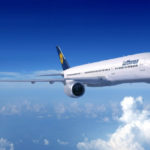
A director with the National Drug Law Enforcement Agency (NDLEA), Ahmed Garba, has revealed that most drug movements through Nigeria’s airports have insider collaborators at the airports.
He also disclosed that drug traffickers that use scheduled commercial airlines, carry relatively small volume of drugs, while large volumes are conveyed in private jets and through cargo freighting.
Garba, who disclosed this during his presentation at the 10th Airport Business Summit and Expo (ABSE), held in Lagos, said Nigeria remained a strong drug traffic route, adding that there are factors that made Nigeria a preferred route for drugs that pass through the nation’s airports to farther destinations.
The factors, according to him, include strategic geographical location; high volume of international passenger traffic and cargo; security gaps; insider collaboration; weak interagency collaboration and coordination; and inadequate profiling tools.
He explained that from Nigeria, people have easy access to Europe, Asia and other African countries. Citing 2021 Aviation Report, he further said the Nigerian airports processed about five million international passengers annually and 1.5 million metric tons of cargo.
“Airports serve as gateways, connecting nations, fostering trade, tourism and cultural exchange. However, in recent days, Nigerian airports have also become attractive transit points for international drug trafficking syndicates, seeking to exploit security gaps and human vulnerability. The strategic geographical location of Nigeria, coupled with high international passenger traffic, have made airport corridors increasingly susceptible to illicit drug trafficking.
“Drug trafficking through airport corridors refers to the illegal movement of narcotics via commercial or private aviation routes. Traffickers employ a wide range of methods, including courier smuggling using moles. Here, I mean, we have instances where you recruit passengers, they swallow these drugs, and they take it to the destination or transit countries where if it is the destination for where the drug is going to be used, they excrete it and they pass it forward. If it is a transit point, then they will excrete, then somebody else will come and take it to what we call the relay,” Garba said.
According to him, if the volume of cargo is much, people use the cargo shipments to conceal the drug and pass it through.
He lamented that some highly placed persons were involved in the trafficking. “Sometimes we misuse some privileges like diplomatic bags or official baggage, are used to just beat law enforcement in the airport. They also use airport insiders, which is a big problem here,” Garba further said.
So, using privileged position one can take drugs through the airports without being screened and take them into the aircraft but another efficient vehicle for the conveyance of drugs are private charter flights.
“Then private or chartered flights. This is bigger than we are thinking. Unfortunately, I think there is not much that has been done to general aviation (which provide charter services),” he said.
The Director explained that drugs are concealed in different ways, which include body packing that includes body packing internal, which is the ingestion where the couriers swallow the drugs through insertion, which could be through the anus and other parts of the body.
“Then body packing external is where you hide the drug, either you wrap it up around your body, you tape it, put it in your brassieres and in your (under) pants and what have you. Then if you want to use luggage, any hollow point in any luggage can be used to hide drug, false bottom, anything. Then we have instances of the cargo, like I said earlier, if the cargo is much, you have to use cargo.
“If the volume of what you want to take out of the country is much, you have to use the cargo. Sometimes they use liquids to disguise drug. We have instances where drugs are inserted inside wine bottles, inside creams, women body creams, spirits and what have you,” he also said.
He revealed that concealment could include foot wares, a very common strategy; and there are instances cocaine is dried in clothes or even towels but in many occasions NDLEA processed them and arrest those involved.
“Minors and pregnant women are people that we take for granted. And we have instances where they have been used to traffic drugs and charter private flights. This is a very serious area that we need to look at. A single movement of drug of two tons of drug on using general aviation will be more than 35 years of arrest in any commercial airport because it’s huge. So that means it’s an area that we need to really look at and make sure nothing happens in that route,” he emphasised
Speaking about security gaps, he said more needs to be done in reining insecurity at the airports, noting. “There are one or two things that are not in place and it’s not peculiar to only Nigeria. There is no airport that is 100% secure. So many airports have their own gaps, but because the gaps are there, couriers, drug barons always want to take advantage of that and come to the airport to make sure they try their trade.”

Garba said insider collaboration remained a very serious issue in drug trafficking in Nigeria, noting that there are so many instances it was confirmed that drugs were moved through insider collaboration at the airports.
“People walking at the airport have been arrested trying to either aid or abet or collaborate directly to make sure they pass drugs. And some of them have even been tried and convicted. So, because of that, they always want to use the airport. Then we have weak interagency collaboration and coordination. There is still serious element of interagency rivalry instead of cooperation and collaboration. Anybody can take advantage of that and do whatever he wants to do. Then do we have adequate profiling tools? Do we have access to PNR (passenger name record? So, these are some of the reasons why they want to target us,” he said.
On how drug trafficking through nation’s airports can be reduced, Garba said authorities must have to reinforce screening.
“In all the airports, we have scanners. Body and baggage scanners, we have in all the airports. Detection dogs, our canine unit is here. Unfortunately, I don’t think we have canine in all the airports in Nigeria.We are doing passenger profiling. It is just a hunter’s spreadsheet, which is not enough. It is grossly inadequate. We need to have complete access to API (application programming interface) and PNR for us to be able to do what is equal that of international standard.
“Then, of course, we do a lot of manual inspections and we get intelligence and we work on watch lists.The country, Nigeria, is a signatory to all the United Nations drug conventions and we use it to the letter in doing our work. It is an appendage of what we have in place,” he said.




